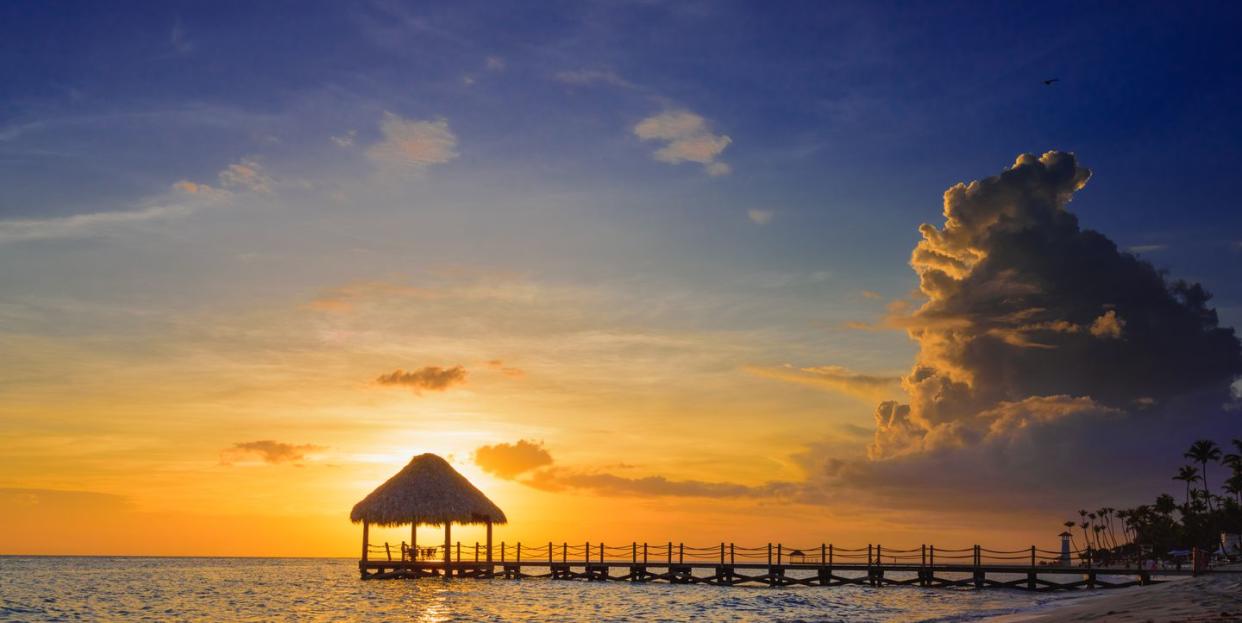Is It Safe to Travel to the Dominican Republic Right Now?

There is something deeply unnerving about an unexplained death in a vacation venue-much less a series of deaths. (It’s something that Agatha Christie understood well and parlayed into eternal whodunit fame with Murder on the Orient Express, Death on the Nile, and Ten Little Indians, all of them, in a sense, frisson-inducing mash-ups of holiday and horror.)
So it’s hardly surprising that reports have surfaced this week of would-be travelers to the Dominican Republic canceling their plans following the news that seven Americans have died in the popular Caribbean island’s beach resorts over the past 12 months.
The last three casualties occurred within five days of each other at the Luxury Bahia Principe Bouganville and the Grand Bahia Principe La Romana, neighboring resorts near the town of San Pedro De Macoris. Two people died at the Hard Rock Hotel & Casino Punta Cana, one in July of 2018, one this past April. A sixth person died in June of 2018 at yet another Bahia Principe resort (there are 14 of these all-inclusives in the Dominican Republic).
All the people appear to have died in somewhat mysterious and seemingly not unrelated circumstances; there are reports of drinks taken from mini bars prior to the deaths, and coroners’ findings of pulmonary edemas (accumulation of fluid in the lungs) and respiratory failure.
(News also surfaced today that Shark Tank star Barbara Corcoran's brother John Corcoran died in the Dominican Republic earlier this year from a heart attack, but at this point there is no apparent connection between him and the other Americans who passed away in the country.)
But consider this as you debate whether to cancel your plans regarding travel in the Dominican Republic-or as you’re deciding not to make them in the first place: Travel, despite how it can sometimes appear to the skittish, is inherently safe. Statistically, you are much more likely to come to harm near your home than far away from it. For instance, a stat I’ve long found astonishing: 70% of all auto accidents take place within a 10-mile radius of where you live.
Also, the Dominican Republic gets more than 2 million visitors annually; the seven fatalities in the last 12 months constitute 0.00035 percent-while of course deeply tragic for the families involved, it is a statistically negligible number. The U.S. Department of State rates the Dominican Republic with a Level 2 travel advisory, which means “exercise increased caution.” (There are four such levels.) Other countries that currently have a Level 2 include the Bahamas, Brazil, China, France, India, Jamaica, Morocco, Spain, Turks and Caicos, and the United Kingdom (among many others few people would think of avoiding out of fear).
Still, if you choose to go to the Dominican Republic in the near future (those low season rates are great), here is some general advice:
Stay at an international travel brand.
There is comfort, I find, in booking recognizable, reputable hotels and resorts. This is especially so when staying at large properties with hundreds of rooms, large numbers of both guests and staff, and many facilities and food outlets. One can assume that a Hilton, say, will have rigorous standards of cleanliness, of employee screening and training, and of procedures for handling food, beverage, and everything else that is consumer facing.
Buy travel insurance.
Despite best intentions, you might change your mind about going if there is more bad news-what if someone else sickens or dies next week, or next month? Even if you put your money down today, you might want it back before your scheduled departure date. Trip insurance, in fact, is always a good idea, whether for geopolitical eventualities, or personal ones (an illness or other emergency).
Don’t drink or eat anything pre-packaged that has been opened already.
While the link to the minibar in the Dominican Republic cases is still highly anecdotal (stemming largely from the speculation of relatives of the people who died) it’s always better to be safe than sorry. And it’s an easy precaution to take. Seal broken on that little bottle of Beefeater gin? Don’t drink it-report it to the front desk or housekeeping.
In the end, to-go-or-not-to-go is going to be your call.
I never categorically advise someone to travel to a place they feel nervous about, or try to talk them into a destination. Such decisions have to be personal ones. Each one of us has different concepts of risk, different levels of tolerance for risk (or even for uncertainty), and different ways of dealing with it. All I can say categorically is that while the “big bad world” is indeed big, I strongly believe that it is rarely bad.
('You Might Also Like',)


